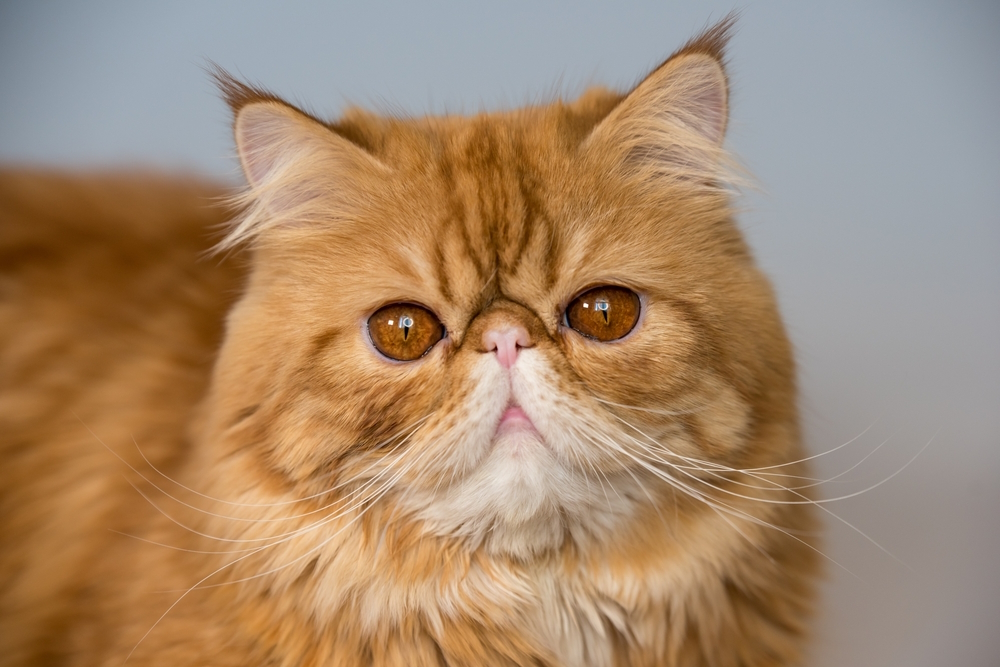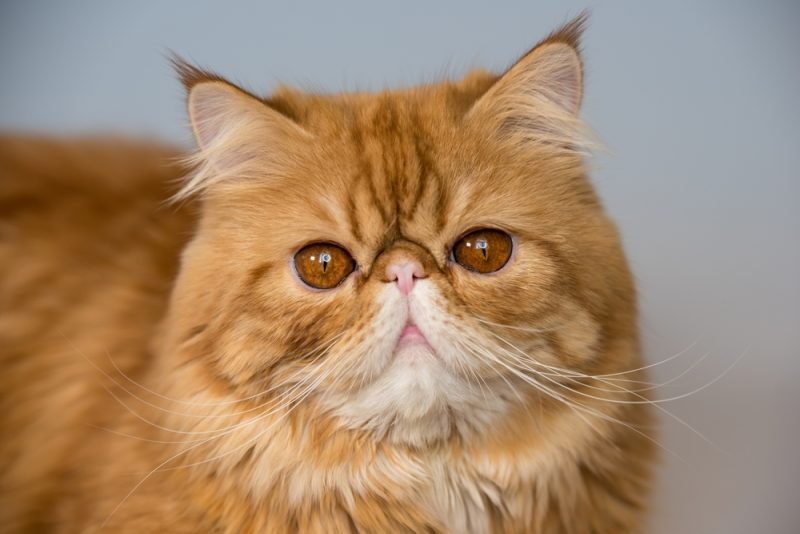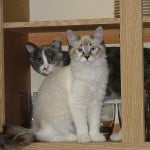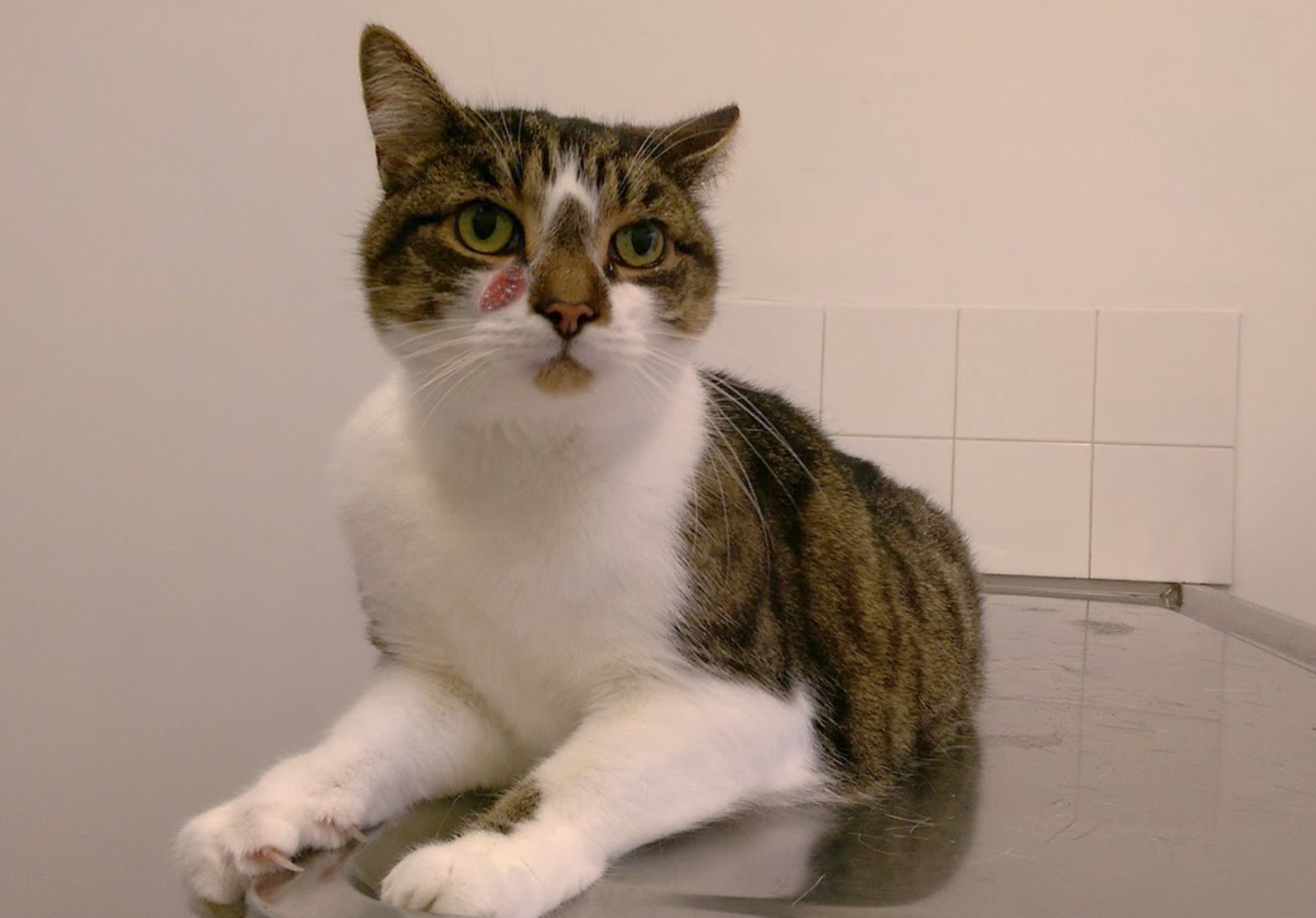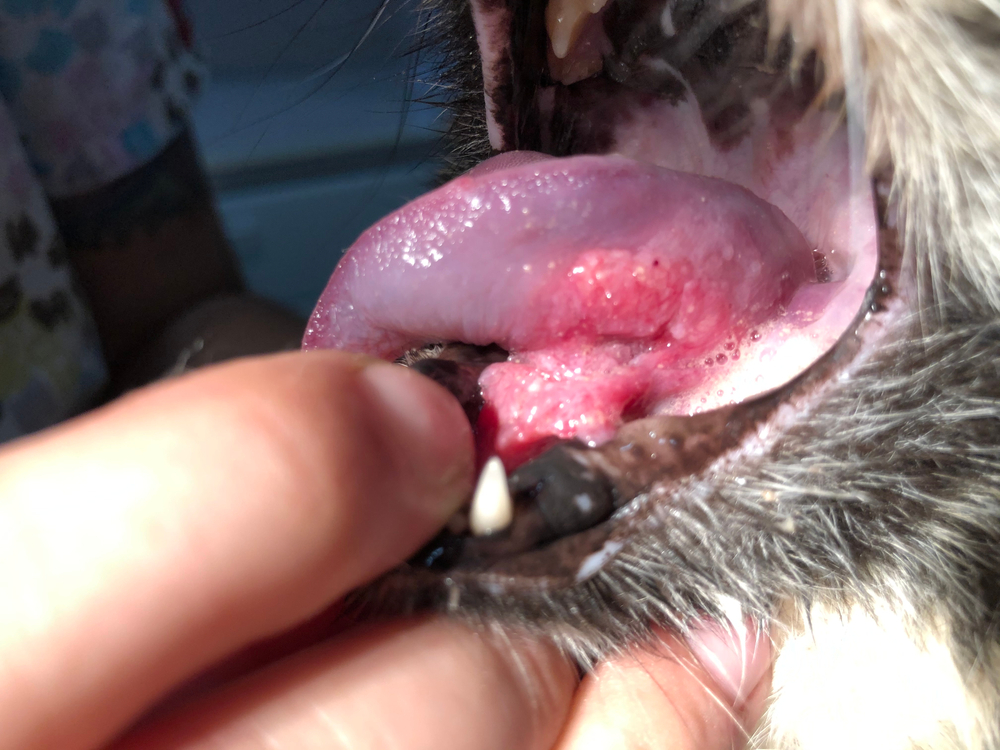Click to Skip Ahead
Brachycephalic means “short head” or “flat face.” You may be familiar with brachycephalic cat breeds, such as the Persian and Burmese. These smooshed-faced cats are undeniably cute, but this unique skull structure can present problems that cats with normal skulls typically don’t have to worry about.
Let’s look closer at these adorable cat breeds and how their appearance can affect their health.
Which Cat Breeds Are Considered Brachycephalic?
Flat-faced cat breeds may include the following. Click to find out more:
How Does a Brachycephalic Skull Structure Affect a Cat?
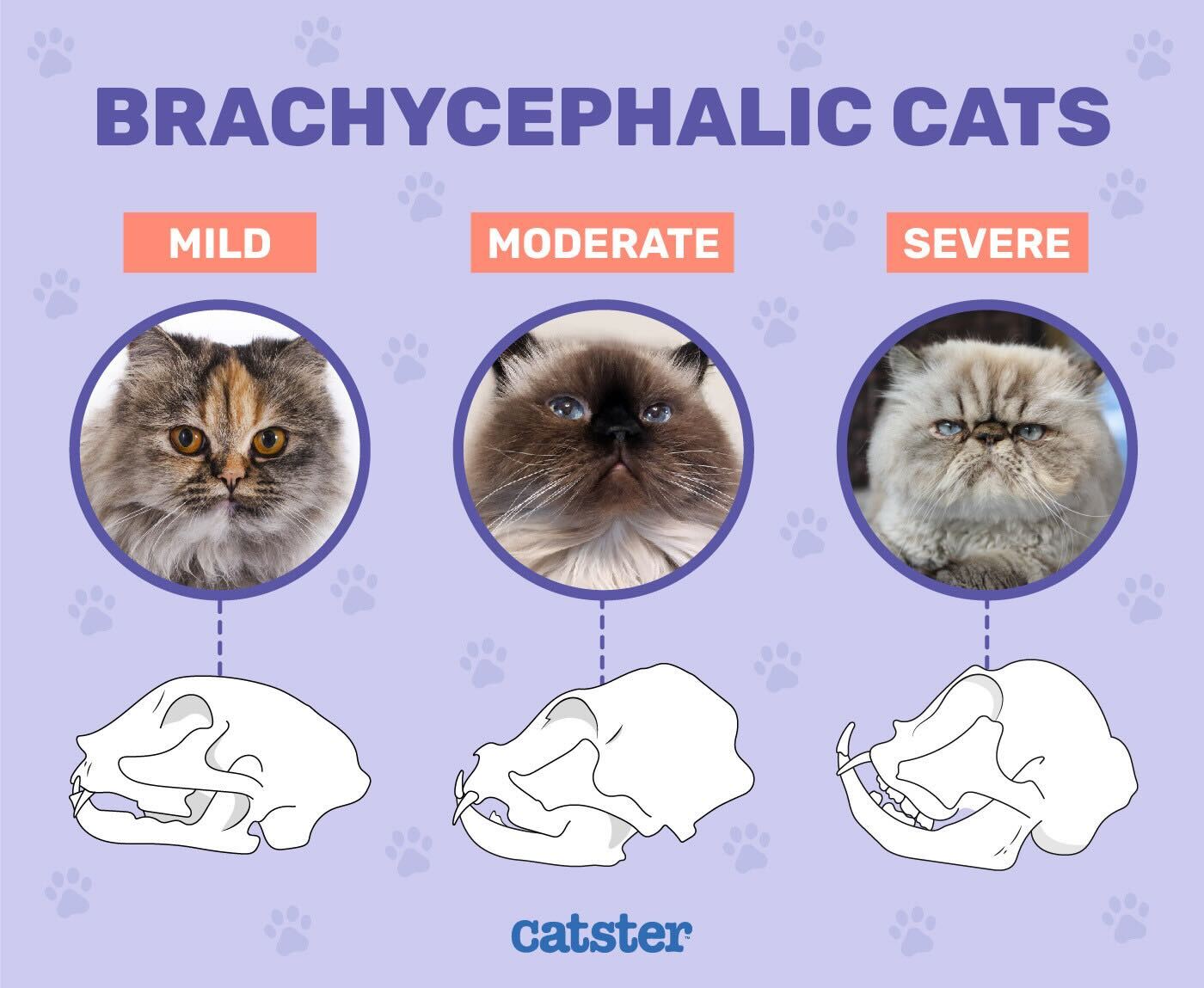
Common health risks associated with flat-face cats include the following.
1. Brachycephalic Airway Syndrome
Cats with a shortened or flattened face may have upper airway abnormalities like narrowed nostrils, elongated soft palate, narrow trachea, or soft tissue obstructing their airways, such as everted laryngeal saccules.
Felines with this syndrome may exhibit signs like noisy breathing, coughing, snoring, panting, and open-mouth breathing. They may also have trouble exercising and may even collapse due to insufficient oxygen in their lungs and brain.
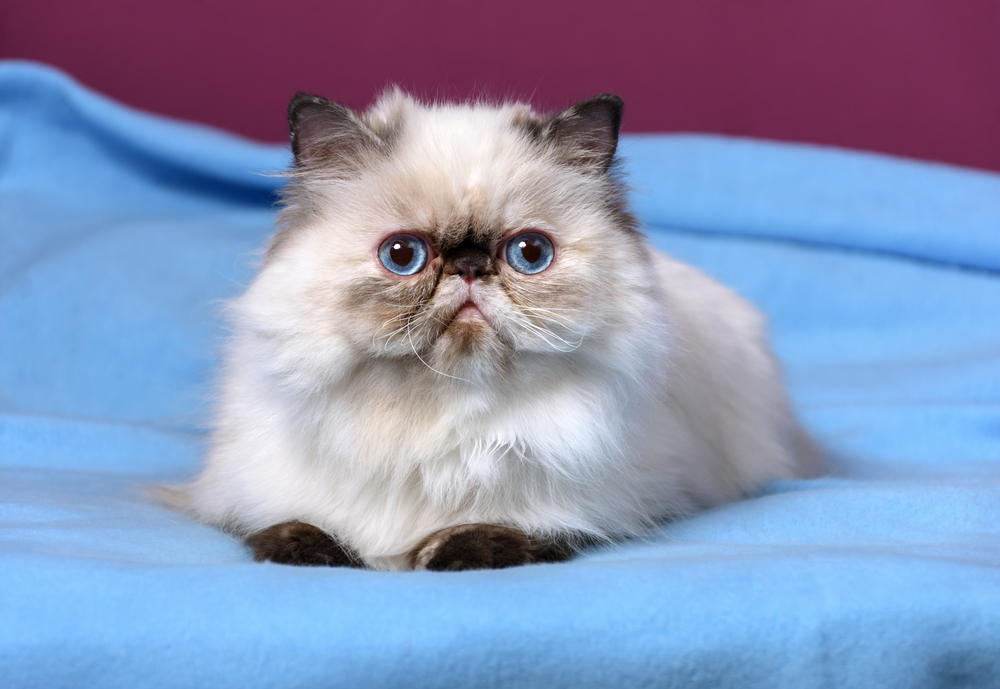
2. Protruding Eyes
The eye sockets of a brachycephalic cat are shallower than normal, which makes them protrude from the skull. Protruding eyes are more prone to injury, ulceration, dryness, and proptosis (eye popped out of eye socket) due to the structural abnormalities of the skull.
Persistent tear drainage, known as epiphora, is also a common issue, as the tears do not drain normally through the tear ducts and instead cause chronic tear staining. Their eyelids may also not close completely, which can lead to eye dryness.
3. Bad Teeth
Brachycephalic cats have the same number of teeth as cats with normal skull shapes, but these teeth are crowded in a smaller space. This can lead to dental infections, malocclusion (improper meeting of the teeth or an abnormal bite), and improper tooth development during growth from kitten to adult. It can also cause mouth pain and difficulty eating.
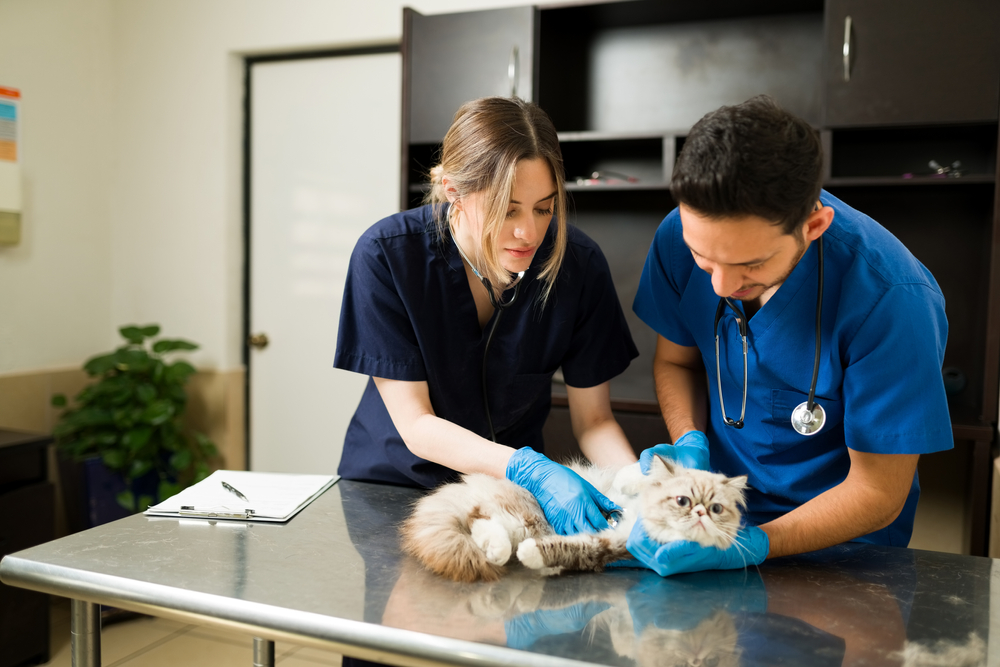
4. Sensitive Skin
Flat-face cats often have skin folds around their faces and mouths that provide a warm and moist environment for bacteria and fungi to grow, leading to itchy skin and infections.
5. Obesity
Brachycephalic cats can be prone to obesity. Abnormal airways and excess body fat can worsen their ability to breathe and may exacerbate brachycephalic airway syndrome.
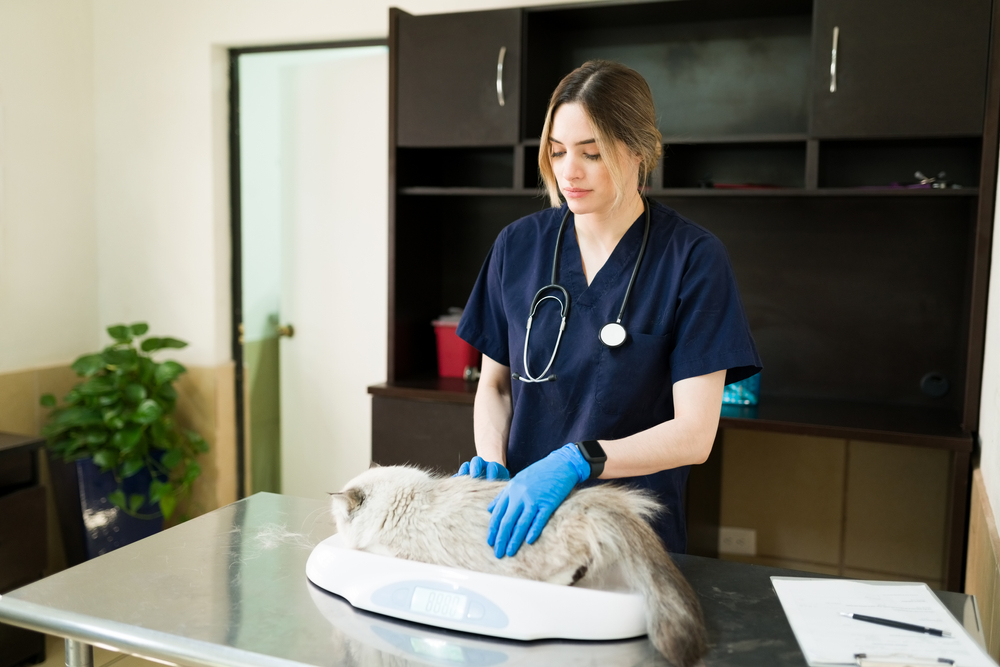
6. Overheating
Flat-faced cats can suffer from heat stress and heatstroke because their airways are usually shortened and abnormal, which can prevent them from cooling down normally. Always keep a close eye on your cat during warmer months, and ensure that they are cool and comfortable.
7. Dystocia
Brachycephalic cats may have difficulty giving birth due to the size and shape of the kittens’ skulls about the diameter of the pelvic canal.
How Can I Keep My Flat-Face Cat Healthy?
- Ensure that they maintain an ideal body weight.
- Encourage daily exercise (but don’t go overboard with it).
- Monitor their daily food and treat intake (use a measuring cup).
- Ensure that your cat is cool and comfortable in warm environments.
- Discuss your cat’s nutritional needs with your veterinarian.

If you need to speak with a vet but can’t get to one, head over to PangoVet. It’s an online service where you can talk to a vet online and get the personalized advice you need for your pet — all at an affordable price!
Conclusion
While brachycephalic, or flat-face, cats are adorable, they do have certain health risks that pet parents need to be aware of. Due to their shortened snout, they can be prone to respiratory, eye, teeth, and skin problems.
Regular checkups with your veterinarian will help ensure that your smushed-face cat stays healthy and that any issues are caught and treated early before they become bigger problems.
Featured Image Credit: Zanna Pesnina, Shutterstock

